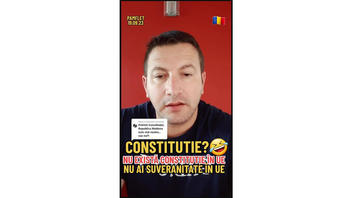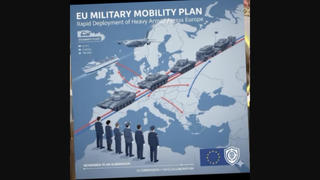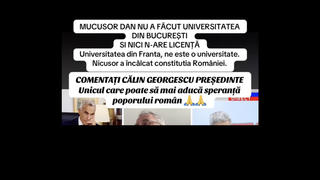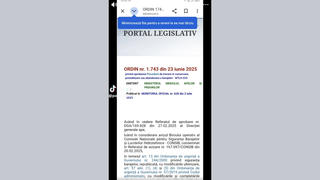
Does a state lose its sovereign rights and its constitution when it joins the European Union and/or NATO? No, that's not true: the European Union (EU) can only act in those areas of common interest where member countries have authorized it to do so, by authority of EU treaties. Member states maintain sovereign rights, and Romania's constitution remains the supreme law of the country. The North Atlantic Treaty Organization (NATO) is an alliance of sovereign countries, with the ability to make collective defense policy decisions by consensus only.
The claim originated from a video (archived here) published on TikTok by user @iondragoshoreabarezerva on September 20, 2023, with a caption translated into English from Romanian by Lead Stories staff reading:
Constitution? There is no such thing as a Constitution in the EU. You don't have sovereignty (as a state) in the EU.
The author claims:
The moment you, as a state, join the EU and NATO, you lose your sovereignty and your Constitution is equal to zero... Romania's Constitution has been violated endless times and Romania is no longer a sovereign state. Romania cannot pass a law, it cannot do anything without the EU's approval.
This is what the post looked like on TikTok at the time of writing:

(Source: TikTok screenshot taken on Mon Sep 25 07:49:48 2023 UTC)
According to the EU Commission's "Areas of EU action" page, the EU can only act in areas authorized by its member states via EU treaties. The treaties specify who can make laws in what areas: the EU, national governments, or both. Member states are limited in applying superseding laws in certain areas unless authorized by the EU. In such cases, the EU has what the treaties call exclusive competencies. In other areas, the EU can only support, coordinate, or complement the actions of member states. In such cases, the EU has what the treaties call supporting competencies which enable the EU to play a limited role that does not go beyond what it is normally allowed under the treaties. Under strict conditions, the EU may take action outside its normal areas of responsibility.
The EU has no power to pass national laws and may not interfere with member countries' ability to do so, with each EU member state having its own law and legal system. In Romania, the Constitution represents the supreme law of the land. According to the Constitution, the nation is a single and indivisible state, with relations between the executive, the legislative, and the judicial branches, and between the public bodies, citizens, and legal persons, according to the European e-Justice Portal.
According to NATO's "Purpose" page, NATO is an alliance of countries that maintain their independence and sovereignty. It is not a supranational organization, but rather an organization allowing member states to meet and make collective decisions that require consensus, meaning that every decision is mutually agreed upon among all of its members and represents the expression of their collective will. Since every member preserves its full independence and sovereignty, no decision may be made by NATO against the will of any one of its members. A NATO decision is, therefore, the unanimous decision of all governments, according to a US Department of State fact sheet about NATO.













